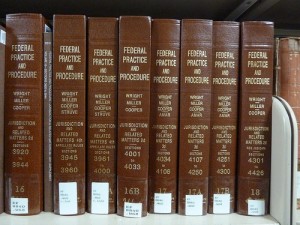The Seventh Circuit has become the first federal circuit court of appeals to rule that employees may bring sexual orientation discrimination claims under Title VII. This case directly affects state and local governments in their capacity as employers in Indiana, Illinois, and Wisconsin.
Title VII of the Civil Rights Act of 1964 makes it unlawful for employers to discriminate on the basis of a person’s “race, color, religion, sex, or national origin.”
Kimberly Hively is openly lesbian. She sued Ivy Tech Community College where she taught as a part-time, adjunct professor. She applied for at least six full-time positions between 2009 and 2014, didn’t receive any of them, and in July 2014, her part-time contract was not renewed. She believes her sexual orientation is the reason.
The Seventh Circuit had long held that sexual orientation discrimination claims weren’t cognizable under Title VII. The court decided to revisit this conclusion “in light of developments at the Supreme Court extending over two decades.” These decisions include Obergefell v. Hodges (2015), which granted same-sex couples a constitutional right to marry. Continue reading




